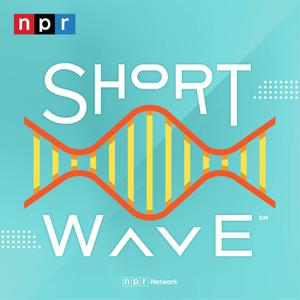🚀 From Google Podcasts to Moon FM in No Time: Your Hassle-Free Migration Guide
👉

New discoveries, everyday mysteries, and the science behind the headlines — in just under 15 minutes. It's science for everyone, using a lot of creativity and a little humor. Join hosts Emily Kwong and Regina Barber for science on a different wavelength.If you're hooked, try Short Wave Plus. Your subscription supports the show and unlocks a sponsor-free feed. Learn more at plus.npr.org/shortwave
Your feedback is valuable to us. Should you encounter any bugs, glitches, lack of functionality or other problems, please email us on [email protected] or join Moon.FM Telegram Group where you can talk directly to the dev team who are happy to answer any queries.